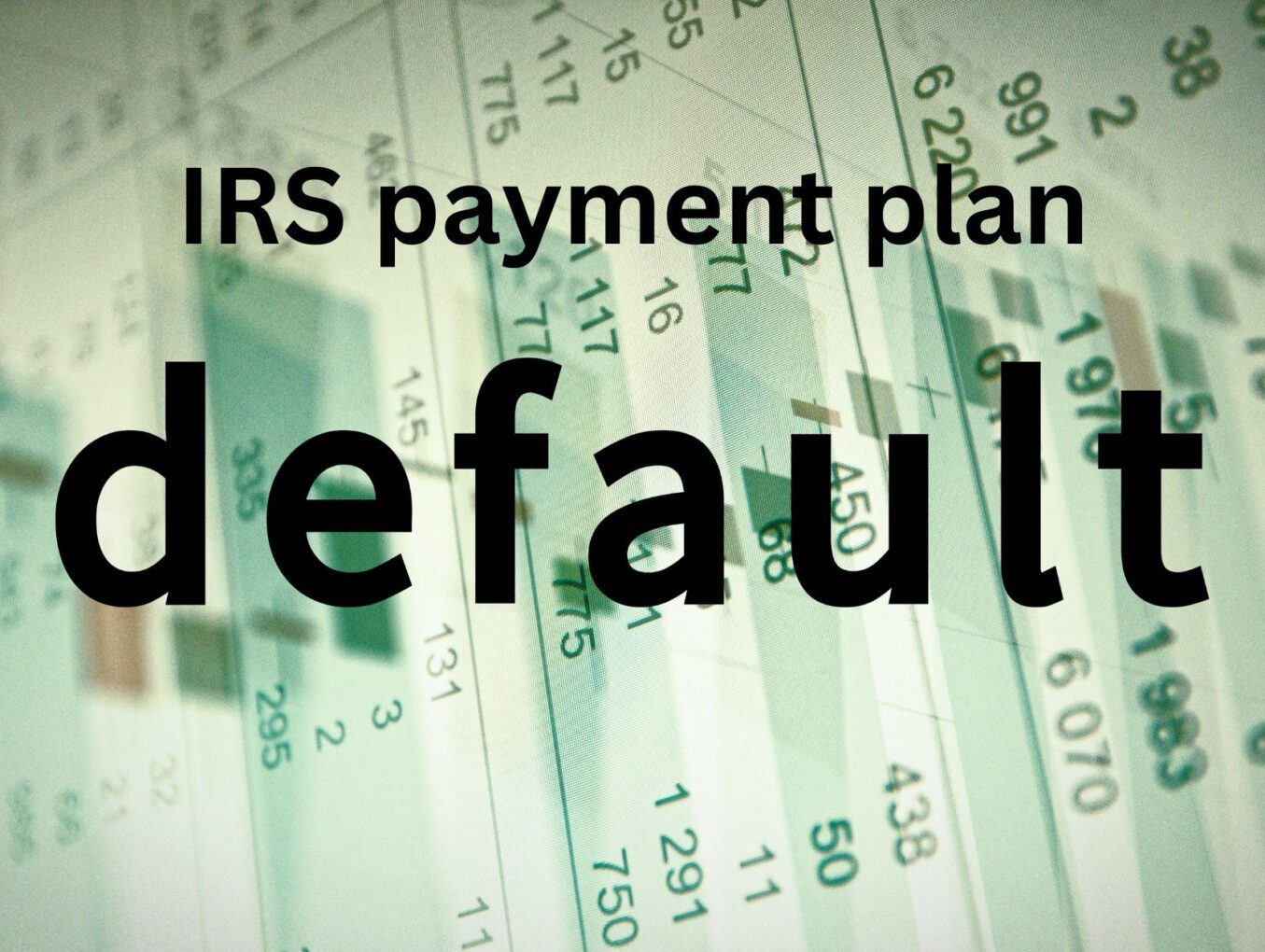When Can the IRS Put Your Payment Plan Into Default?
The IRS puts installment agreement payment plans into default for missed payments and failure to provide necessary documents to complete or modify an existing plan.
In addition, the IRS does not consider partial payments as actual payments. For example, if you agreed to pay the IRS $500 a month but send only $100, the IRS can say your payment plan is in default.
Before you default, the IRS sends a reminder notice that you missed a monthly payment. If you continue to fail to make payments, you will receive an IRS notice of intent to terminate your installment agreement.
If you ignore this intent notice and do not catch up on payments, the IRS will likely terminate your installment agreement.
Are You Still Eligible for Tax Relief If You Default?
You may be eligible for tax relief if you default on an installment agreement by proving to the IRS that your financial situation has worsened (i.e., you lost your job or have health issues).
In this case, the IRS could agree to modify the original terms of your installment agreement and continue to give you tax relief.
A second tax relief option if you default on an installment agreement is an Offer in Compromise. If the IRS determines your ability to pay your tax debt has changed, they may agree to accept an “offer” to settle for less than the amount you owe.
Currently Not Collectible status is a third way to get tax relief after defaulting on an installment agreement.
You may be eligible for CNC status if you cannot make any tax payments. This includes taxpayers who depend solely on Social Security or unemployment to pay bills or have no liquid assets or income to pay off a tax debt.
If you believe the IRS mistakenly claimed you are in default on your payment plan, you can also request a Collection Due Process (CDP) hearing to challenge the decision.
How Does Defaulting On Your IRS Payment Affect Your Tax Debt Amount and Collections?
Interest on back taxes starts accruing from the date they are due and continues to be added until the debt is paid in full. So, if you default and it takes you even longer to resolve your unpaid taxes, you will owe more than your original tax balance.
The IRS interest rate applied to tax debt for the 1st and 2nd quarters of 2024 is 8%. This percentage applies to both individuals and corporations defaulting on payment plans.
In addition to interest charges, you are more at risk of an IRS tax lien or levy if you default and are not making payments to settle your tax debt.
Can the IRS Immediately Issue a Tax Lien or Start a Levy As Soon As You Default?
You will not receive a tax lien or levy notice if you miss one or two payments. However, if you do not respond to reminders and demand for payment notices, the IRS is authorized to put a tax lien on your property, garnish your wages, seize your bank accounts, and more to collect.
If you receive a Notice of Federal Tax Lien (NFTL) in the mail, the IRS has legally taken control of the property named in your notice. An NFTL is also considered a public notice to creditors that the IRS has liens against your property.
If the IRS places a lien on your house, you may not be able to refinance or sell the home until the tax debt is paid.
In addition to a tax lien the IRS can start a levy to resolve your tax debt. A levy can include taking your wages, bank account funds, and retirement funds. The IRS may also take your home and cars and sell them to pay off taxes you owe.
How Much Time Do You Have to Reinstate Your Payment Plan When You Receive a CP523 Notice?
When you default on an IRS payment agreement, they will send you a CP523 notice informing you that they intend to terminate your installment agreement.
You must work with the IRS to reinstate your payment plan within 30 days from the notice date. If you do not, the IRS can pursue a lien and levy.
Need more help? You can start online by answering 6 simple questions.
6 Simple Questions. Free Evaluation.

